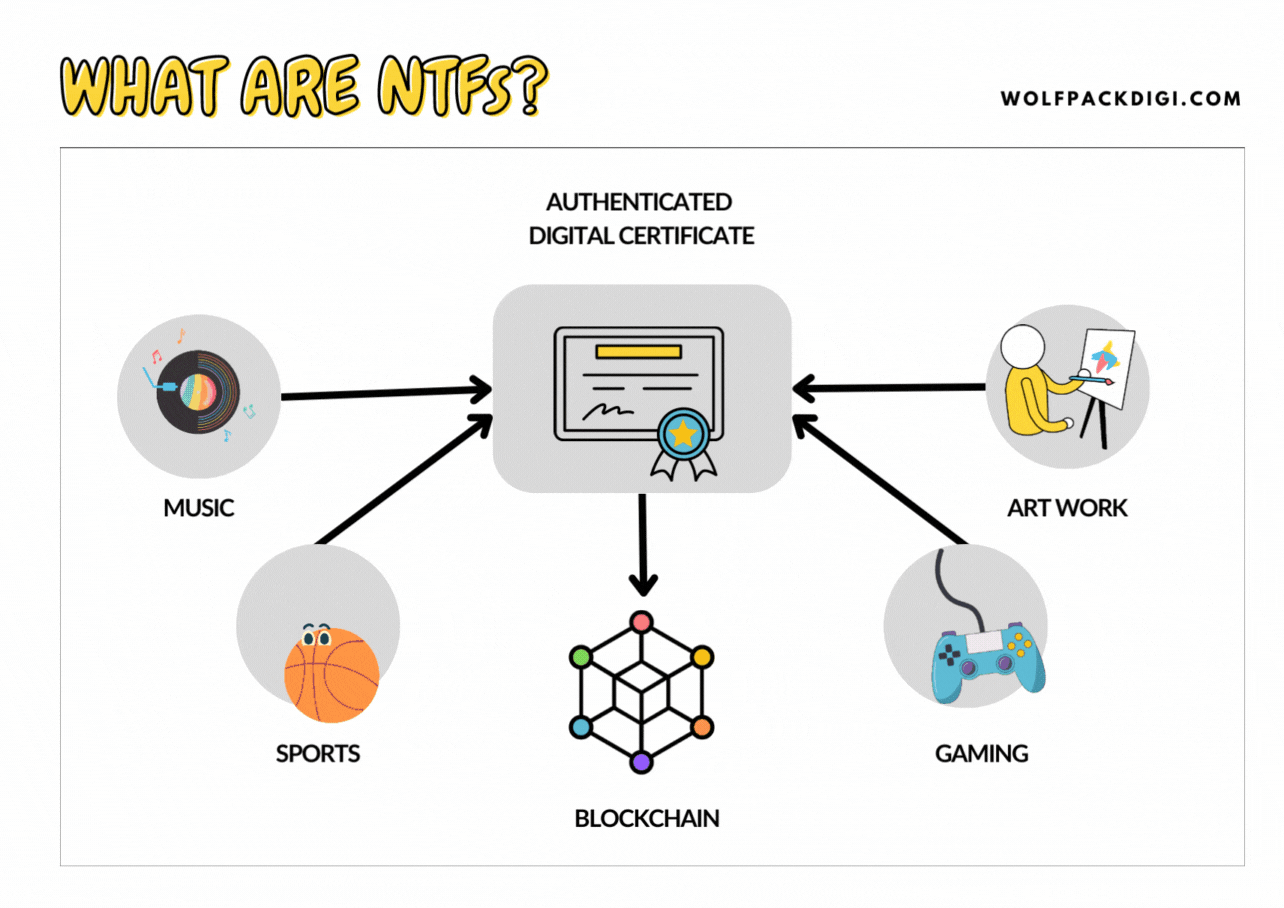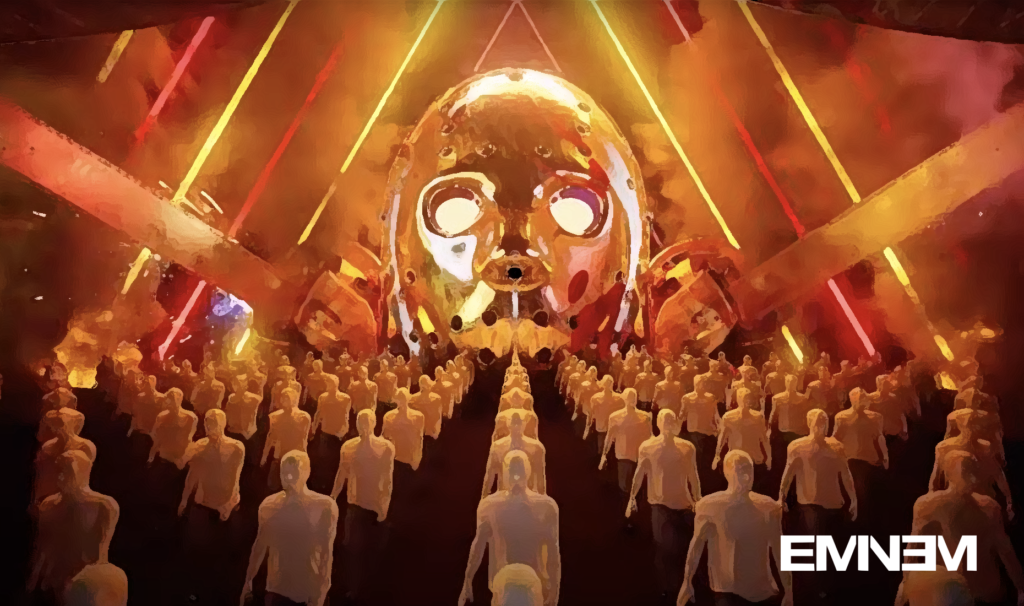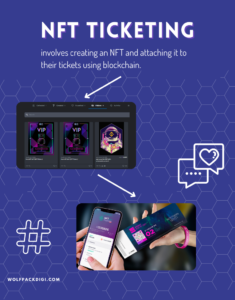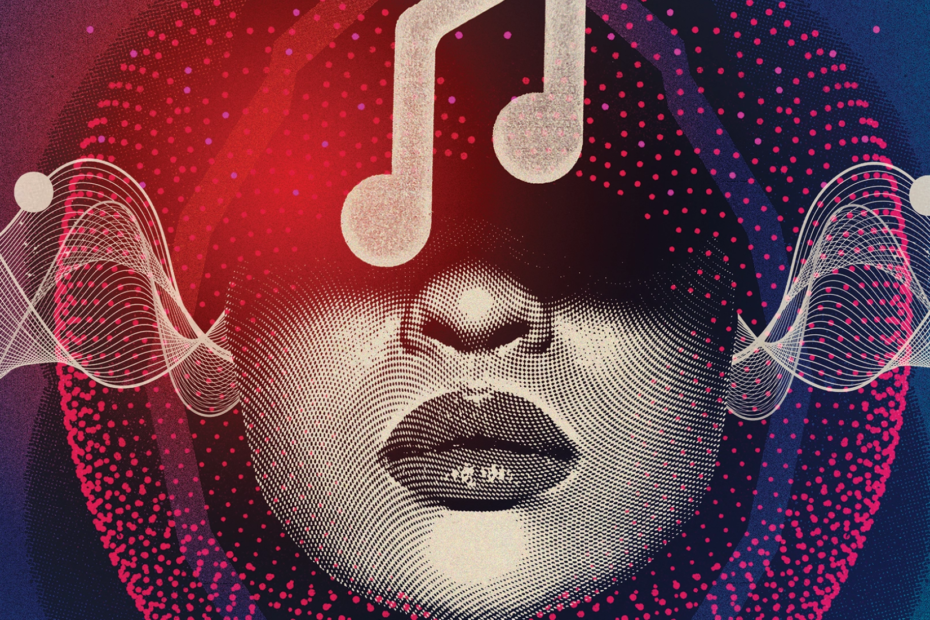Dane Scarborough rightly said – “NFTs are birth certificates for the offspring of creators.” NFTs have travelled far and wide in the modern world of innovation and are here to stay. They are taking the digital art and collectibles world by storm. Long gone is the time when only celebrities created them and sold them for millions. As the world prepares itself for the metaverse and all that it brings with it, NFTs will be something which would become part of everyday lives of people while they enjoy themselves making money through their art.
NFTs seem to be not just an art fad, instead they seem to be the flag bearers of the upcoming change in the marketplaces, with most of them going virtual and assets going digital. Before understanding how NFTs could impact the music industry, let’s understand what NFTs are.
What exactly are NFTs?
Non fungible tokens-NFTs are cryptographic assets on a blockchain with unique identification codes and metadata that distinguish them from each other. Basically, they are digital assets that represent real world objects like music, art, videos etc. They let us tokenize different forms of art and even real estate and no one can modify the record of ownership or copy/paste a new NFT into existence. They can be created by anybody as they require little or no coding skills to create. Being uniquely identifiable, they are different from cryptocurrencies as they are fungible. They’ve been here since 2014, but their market grew multi fold in the phase of 2020-2021 and is still on the rise.

NFT Marketplaces for artists to sell their art
There are various marketplaces for artists to sell their art in the form of NFTs.
Some of them are below,
- OpenSea
OpenSea is the leader in NFT sales. OpenSea has all sorts of digital assets available on its platform. It also supports artists and creators and has an easy-to-use process if you want to create your own NFT.
- Rarible
Rarible is another large marketplace for all sorts of NFTs, similar to OpenSea. All kinds of art, videos, collectibles, and music can be bought, sold, or created on the platform.
- SuperRare
Similar to Rarible, SuperRare is also building a marketplace for digital creators. The site includes art, videos, and 3D images, but collectors can purchase artwork using Ethereum.
- Foundation
Foundation.app was designed as a simple, no-frills way to bid on digital art. Sales are made using Ethereum. Since the marketplace’s launch in early 2021, it has sold more than $100 million of NFTs. - Nifty Gateway
Nifty Gateway has facilitated the sale of some of the most popular digital artists such as Beeple and singer/musician Grimes. It’s an art curation platform powered by the crypto exchange Gemini. The NFTs, known as Nifties, are built on Ethereum.
NFTs and Music
Music and technology have been going hand-in-hand since sound recording got invented back in 1877. Many technological developments have been adapted into music since then and have pretty much governed how it is made, performed and distributed among masses and music has been embracing this new concept of NFTs too in recent times. Music artists now have a new way of monetizing their work, the earlier way being various streaming services selling their subscriptions for unlimited ad-free music. As the NFTs cannot be replicated, they are ideal for storing artwork.

How can artists take advantage of NFTs?
Artists can take advantage of this new blockchain based ownership system by creating NFT of a song and then selling it on a blockchain based marketplace. When an artist mints their music into NFTs, it permanently records who created the music and when. This would give its buyers forever access to the song and they can listen to it whenever they want. This would build a good and direct connection between the artist and the buyer.
Artists can roll out exclusive content through NFTs and reward their loyal fan bases and sell NFTs as tickets for their live events which would be convenient for the listeners too as it would free them from the fear of losing their tickets.
This acts as an opportunity for the artists to get a fair amount for their work, especially with them not being properly compensated for years. In a report by Fortune, the usual revenue split is around 50-50, 50% of the revenue going to the artist and the other part to the several other parties (This is mainly due to the overall revenue being split between artists and record labels, agents, lawyers, distributors, and other “stakeholders” in the artists’ music.) involved. It is even more unfortunate for the artists when it comes to their music being streamed on the various popular streaming platforms. Taking the example of Spotify, only the top 0.8% artists earn more than $50,000 through streaming of their songs.

Instances when music artists sold their artwork through NFTs
Artists have started realising the benefits of the NFT marketplace. In February 2021, record label LuckyMe announced that one of their hallmark artists Jacques Greene would be auctioning off the publishing rights of his new single “in perpetuity”, with the name of the single being “Promise”. Before the auction fans were given a six second tease of the song. The song was sold for 13 ETH at that time.
In March 2021, electronic DJ/producer Steve Aoki released his first NFT collection, Dream Catcher through the NFT Marketplace Nifty Gateway. It sold for $4.5 million.
In the same month, renowned Nashville garage rockers Kings of Leon released a new album called When You See Yourself and made it available as an NFT through YellowHeart platform and made 820 ETH(around $1.4 million at that time).
What does the future hold for this NFT-Music relationship?
We are close to seeing an era where instead of relinquishing rights over the songs, artists reclaim full ownership of their art by forgoing intermediaries like music labels and streaming platforms to release their music independently to the public.
As artists start to pay attention to this novel way of increasing fan engagement along with getting the fair share of compensation for their art, industry seems to be fast moving in a new direction where this method of music distribution through NFTs would compete with that of streaming services that have established them over a period of time. Public support for this form of distribution seems to be on a high, keeping in mind how the fans are being able to connect to their favourite artists in never-seen-before ways through collectibles in various forms. It remains to be seen how the music industry would work in this new age-new tech generation but this seems to be a promising prospect.
